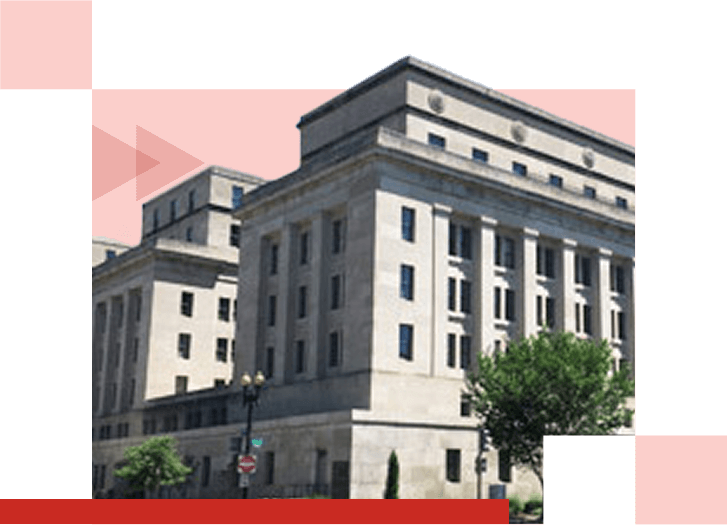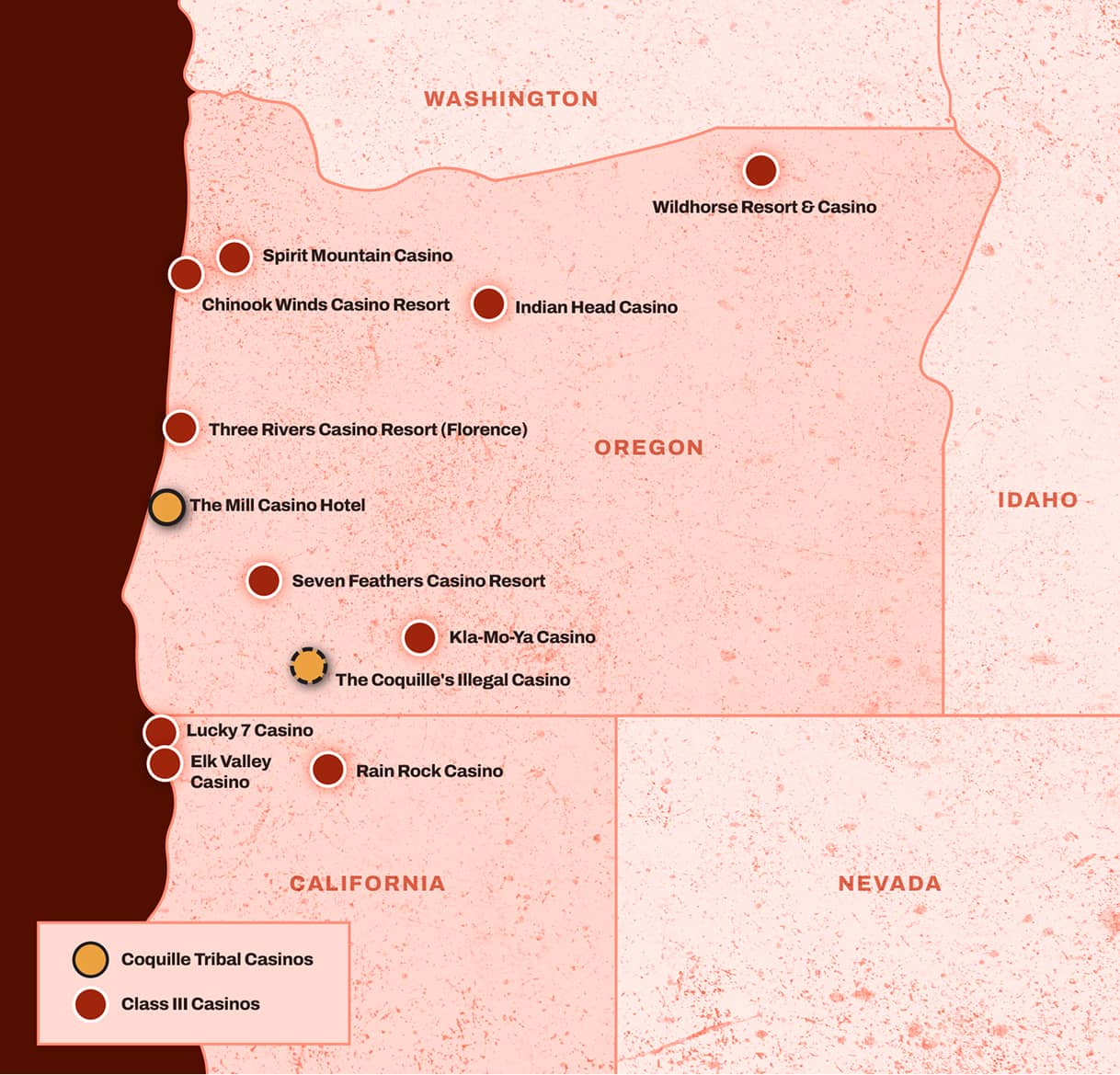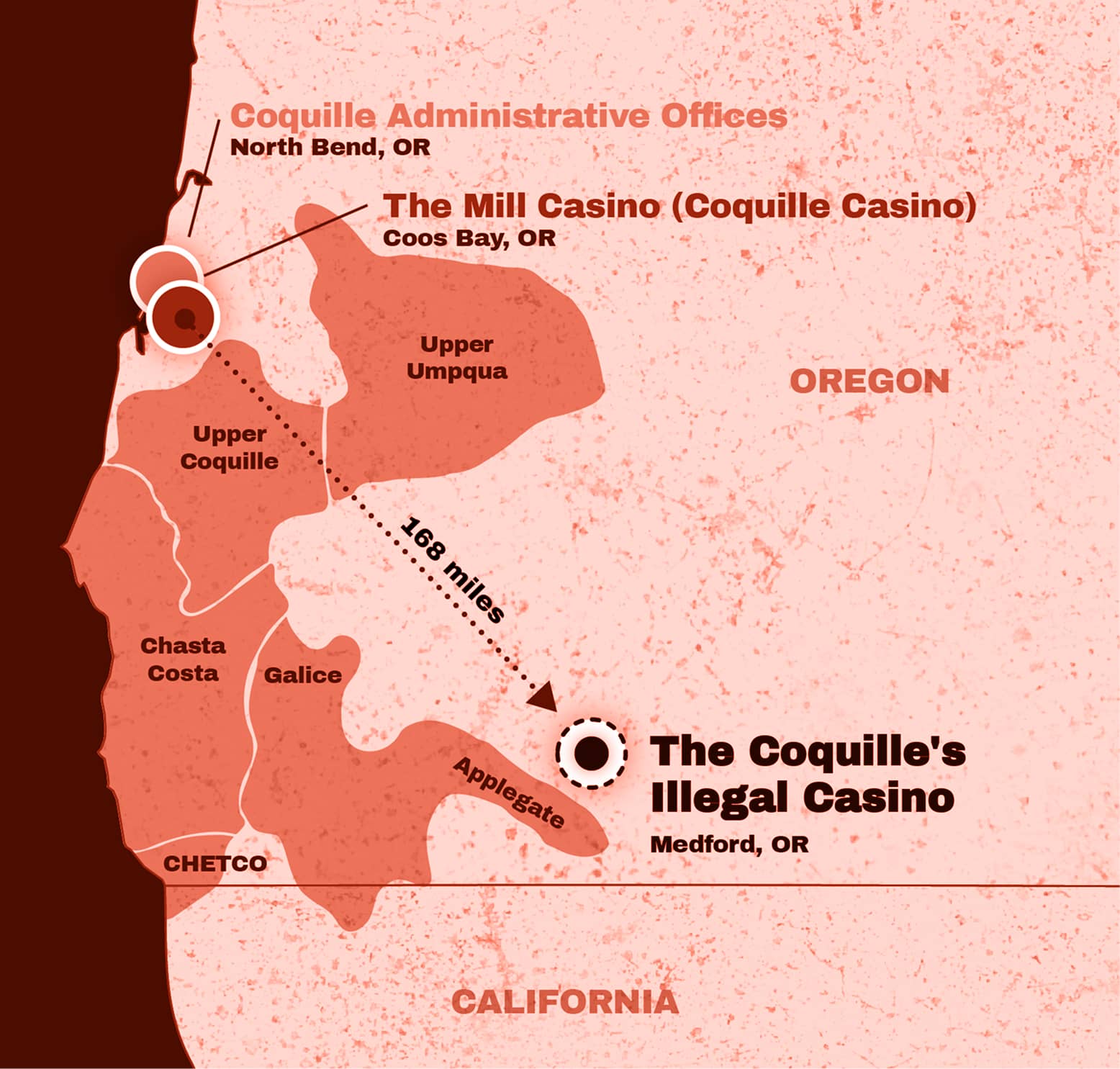
Keep the Promise to
Native American
Tribes
President Trump and Secretary Burgum
Keep the American Promise to Tribes
Protect Ancestral Homeland Integrity
In the final days in office, the Biden Administration allowed one Oregon Tribe an unprecedented exception to the Indian Gaming Regulatory Act that will have a devastating social, cultural, and economic impact on at least five other Tribes, and could lead to the mass proliferation of tribal casinos across the west coast and entire nation.
This unilateral action flew in the face of Congress, States, Local communities, hundreds of Tribes and was one of many final attempts by the Biden Administration to make Trump’s transition back to power more difficult. Now, we are urging President Trump and Secretary Burgum to push back on Biden’s attempt to pick political favorites and restore law and order as President Trump had to do on this issue once before.
The Trump Administration should immediately rescind this action and reinstate President Trump’s rule of the law as he did in 2020.
make the right decision
Biden’s Bad
Casino Deal
Congress passed the Indian Gaming Regulatory Act (IGRA) to support Tribal communities through gaming revenues, while limiting the risks associated with gaming in communities across the country. Now, a lingering Biden Administration decision allows one Oregon Tribe to circumvent the law and open more casinos, which will not only harm Tribes in Southern Oregon and Northern California, but open the floodgates for casino development across multiple states.
Congress passed the Coquille Restoration Act (CRA) in 1989, which restored the Coquille Indian Tribe as a recognized sovereign. The Coquille opened the Mill Casino in their ancestral territory of North Bend along the Oregon coast in 1995, where it is operational today.
But in the final days of office, the Biden Administration approved the Coquille’s second casino in Medford, Oregon, more than 165 miles away from the Coquille’s reservation lands where they have no ancestral ties.
Allowing one Tribe to open a second, off reservation casino through an exception to the process that all other Tribes must follow not only defied Congress, but will also irreparably harm the ability of at least five other Tribes to provide programs and services for their members.
It also infringes on states’ rights and input on casino developments as well as opens the door to the unchecked proliferation of tribal gaming across the country.
The Trump Administration correctly rejected Coquille’s argument in 2020, stating they could not use the CRA, and instead had to follow the “two-part determination” process of the Indian Gaming Regulatory Act (IGRA) that involves state and local government consultation and the Governor of Oregon’s concurrence. Biden’s decision in the final hours to approve the Coquille’s application is a slap in the face to all other Tribes, Oregon’s “One Casino per Tribe” policy and the local communities who should have a voice.

“As the distance between the land and the Tribe’s reservation increases… the (Coquille) Tribe’s anticipated benefits do not outweigh the … problems and other concerns raised by the state.”
Assistant Secretary of Indian Affairs in Trump Administration 2020 John Tahsuda
Bipartisan Opposition
AUGUST 13, 2024
The Department of the Interior's Response to to Chairman Westerman
As codified at 25 USC §2719, the Indian Gaming Regulatory Act (IGRA) generally prohibits gaming on lands acquired in trust after October 17, 1988, with exceptions only as specified in that provision. The IGRA’s general prohibition is the primary barrier for Tribes seeking to have land taken into trust for gaming.

MARCH 5, 2024
Tribal Alliance Opposition Letter to Secretary Haaland
To the extent you have not yet reached the conclusion that the Coquille Project, if approved, would violate the substance and intent of the Indian Gaming Regulatory Act, and would cause irreparable harm to regional Tribal communities, we invite you to travel to our homelands and consult with our elected leaders about how the Coquille Project would impact each of our Tribal nations and peoples.

JANUARY 16, 2024
Opposition Letter from Representatives Blumenauer, Huffman, Salinas to Secretary Haaland
We write today to urge you to reject the Coquille Indian Tribe’s application to have land taken into trust under the restored lands exception to the Indian Gaming Regulatory Act (IGRA), for the development of a new Class II casino in Medford, Oregon.

December 20, 2023
Opposition Letter from Senator Butler to Secretary Haaland
I write today to urge you to decline the Coquille Indian Tribe’s (Coquille) application to have land taken into trust under the restored lands exemption for gaming to open a second casino…

A Deal That
Nobody Wants
Each of the original authors of Coquille’s restoration act have opposed The Department of the Interior using that act to restore these non-ancestral lands for gaming.
The impact is already being felt well beyond Southern Oregon as other Tribes have similar language in their restoration acts – including Tribes in Michigan, Nebraska, and Northern California – will be able to open casinos on parcels of land far beyond their ancestral or historic territories.

This decision could have a cascading impact across the country for Tribes who rely on lawful casinos to generate revenue for tribal services and allow casinos to be developed with no input from the community or compacts with the states.
IMPACT
Don’t Reward an unfair process
The Biden Administration’s Bureau of Indian Affairs wrongly approved the Coquille’s request despite the serious economic and existential harm it will have on at least five other Tribes, including those who have played fairly with a “One Tribe, One Casino” policy of Oregon.
They also disregarded the bipartisan coalition of elected officials in Oregon and California that warned, for over a decade, about the precedent of this decision that will enable an explosion of casinos, and undermine the hard-won trust between Tribes and their neighboring communities. This group of Senators, House Representatives, Governors, state, local elected and Tribal officials opposed this plan from the start.
This decision is already pitting Tribes—some of the nation’s most marginalized communities—against each other in building gaming facilities. This is a race to the bottom that requires the Trump Administration to step in to stop it before it is out of control and wastes taxpayer dollars and government resources.
Casino Locations of the Native Peoples of Oregon
and California

The Coquille Tribe has what they call “the premier gaming and entertainment destination on the Oregon Coast,” and now is expanding their casino operations to Southern Oregon. They blatantly violated the “One Tribe, One Casino” policy in Oregon with a new off-reservation facility over 170 miles from their current casino, on lands they never traditionally owned or occupied.
make the right decision
President Trump’s Administration should make the right and fair decision and reverse the Biden Administration’s manipulation of the Coquille Restoration Act just days before President Trump returned.
They should refer to their correct decision in 2020 and require the Coquille Tribe to go through the two-part determination as laid out in the IGRA.
BIPARTISAN opposition TO THE COQUILLE'S CASINO:
Rep. Cliff Bentz, R-OR-02
Rep. Doug LaMalfa, R-CA-01
Governor Tina Kotek
Fmr. Governor Kate Brown
Fmr. Governor John Kitzhaber
Fmr. Governor Barbara Roberts
Sen. Ron Wyden, D-OR
Sen. Jeff Merkley, D-OR
Sen. Alex Padilla, D-CA
Fmr. Senator Dianne Feinstein, D-CA
Rep. Suzanne Bonamici, D-OR-01
Fmr. Rep. Earl Blumenauer, D-OR-03
Rep. Jared Huffman, D-CA-02

